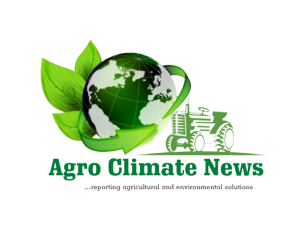By Adam Said Adam
As the harmattan season begins in Kano, residents are noticing significant changes in the weather, particularly in the early mornings and evenings. The air has become colder, the winds stronger, and the humidity significantly lower—hallmarks of the harmattan’s arrival.
Harmattan is a dry and dusty northeasterly trade wind that originates from the Sahara Desert and blows toward the Gulf of Guinea. It typically occurs between November and March, bringing a mix of cold temperatures, dry air, and fine dust particles that affect both the environment and human health.
Read Also: EXCLUSIVE: Karfi Corn Market: Where women, youths turn maize into gold
Read Also: Prof. Tanko urges massive tree planting to combat climate impact
This season is often considered challenging, as residents report a range of illnesses and discomfort. Individuals with asthma and other respiratory conditions may find their symptoms aggravated by the harmattan, making it difficult for them to live freely and healthily.
A study conducted in a semi-arid region of Nigeria (though not in Kano) revealed that 94.3% of respondents reported experiencing dust-related issues during the harmattan season, and 77.9% faced health problems such as coughing, worsened asthma, headaches, and eye irritation.
In an interview with Agro Climate News, Umar Isyaku Umar, a Kano resident, shared his thoughts on this seasonal shift. “The weather is cold, and it affects me significantly,” he said. Umar uses various methods to protect himself from the harsh conditions, such as applying moisturizing oil to combat skin dryness and wearing sweaters to stay warm.
Yusif Adam, a student at Kano State Polytechnic, expressed his dislike for the season. “Harmattan is very dry and dusty, which is why I don’t like it,” he said. The dry air and dust make it difficult for him to enjoy outdoor activities and concentrate during his studies.
On the other hand, Salisu Idris Madobin Duste, an asthma patient and journalist, described the harmattan as the most challenging time of year for him. “I manage the situation with regular visits to the hospital and consultations with health experts,” he explained. “I attend medical checkups regularly and wear a face mask due to the windy and dusty air.”
For individuals with respiratory conditions, harmattan poses serious health risks, making preventive measures essential.
Experts speak on precautions
Dr. Stanley Adamu Adze, a community pharmacist in Kano, outlined several important ways for people to protect themselves during the harmattan season.
“There are many precautions to consider during harmattan, not just for those with asthma and other respiratory diseases, but for the general public as well,” he said. “Protection against infections and wind exposure is crucial. Wearing a face mask helps reduce the inhalation of dust particles, and those with asthma should use prescribed medications and avoid triggers. Moisturizing creams are also helpful for skin conditions.”
He further advised residents to keep their homes clean and close windows to minimize indoor dust.
Additionally, an environmental expert emphasized the long-term benefits of tree planting as a solution to harmattan-related challenges. “Planting trees can help reduce wind speed and trap airborne dust, improving air quality and mitigating the impact of the season,” the expert noted.
The Nigerian Meteorological Agency (NiMet) has released its 2025 seasonal climate prediction, offering crucial insights into expected weather patterns across the country.
According to the prediction, Northern and Central states, including Kano, are likely to experience a delayed onset of rainfall, which typically follows the harmattan season. This delay suggests that the harmattan may last longer than usual, leading to extended dry conditions and increased dust levels.



